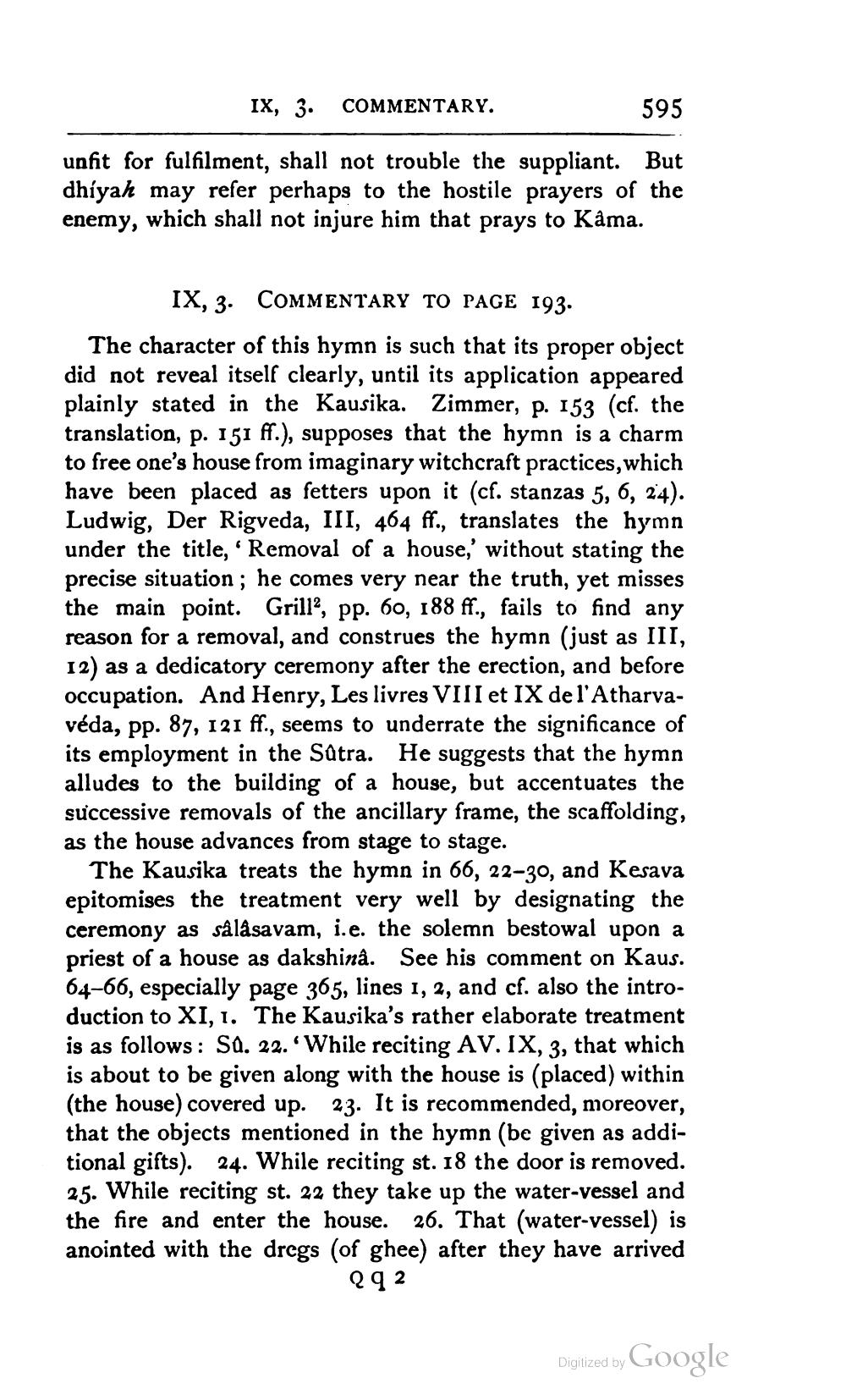________________
IX, 3.
595
unfit for fulfilment, shall not trouble the suppliant. But dhíyah may refer perhaps to the hostile prayers of the enemy, which shall not injure him that prays to Kâma.
COMMENTARY.
IX, 3. COMMENTARY TO PAGE 193.
The character of this hymn is such that its proper object did not reveal itself clearly, until its application appeared plainly stated in the Kausika. Zimmer, p. 153 (cf. the translation, p. 151 ff.), supposes that the hymn is a charm to free one's house from imaginary witchcraft practices, which have been placed as fetters upon it (cf. stanzas 5, 6, 24). Ludwig, Der Rigveda, III, 464 ff., translates the hymn under the title, 'Removal of a house,' without stating the precise situation; he comes very near the truth, yet misses the main point. Grill2, pp. 60, 188 ff., fails to find any reason for a removal, and construes the hymn (just as III, 12) as a dedicatory ceremony after the erection, and before occupation. And Henry, Les livres VIII et IX de l'Atharvavéda, pp. 87, 121 ff., seems to underrate the significance of its employment in the Sûtra. He suggests that the hymn alludes to the building of a house, but accentuates the successive removals of the ancillary frame, the scaffolding, as the house advances from stage to stage.
The Kausika treats the hymn in 66, 22-30, and Kesava epitomises the treatment very well by designating the ceremony as sâlâsavam, i.e. the solemn bestowal upon a priest of a house as dakshinâ. See his comment on Kaus. 64-66, especially page 365, lines 1, 2, and cf. also the introduction to XI, 1. The Kausika's rather elaborate treatment is as follows: Sû. 22. 'While reciting AV. IX, 3, that which is about to be given along with the house is (placed) within (the house) covered up. 23. It is recommended, moreover, that the objects mentioned in the hymn (be given as additional gifts). 24. While reciting st. 18 the door is removed. 25. While reciting st. 22 they take up the water-vessel and the fire and enter the house. 26. That (water-vessel) is anointed with the dregs (of ghee) after they have arrived 292
Digitized by
Google




